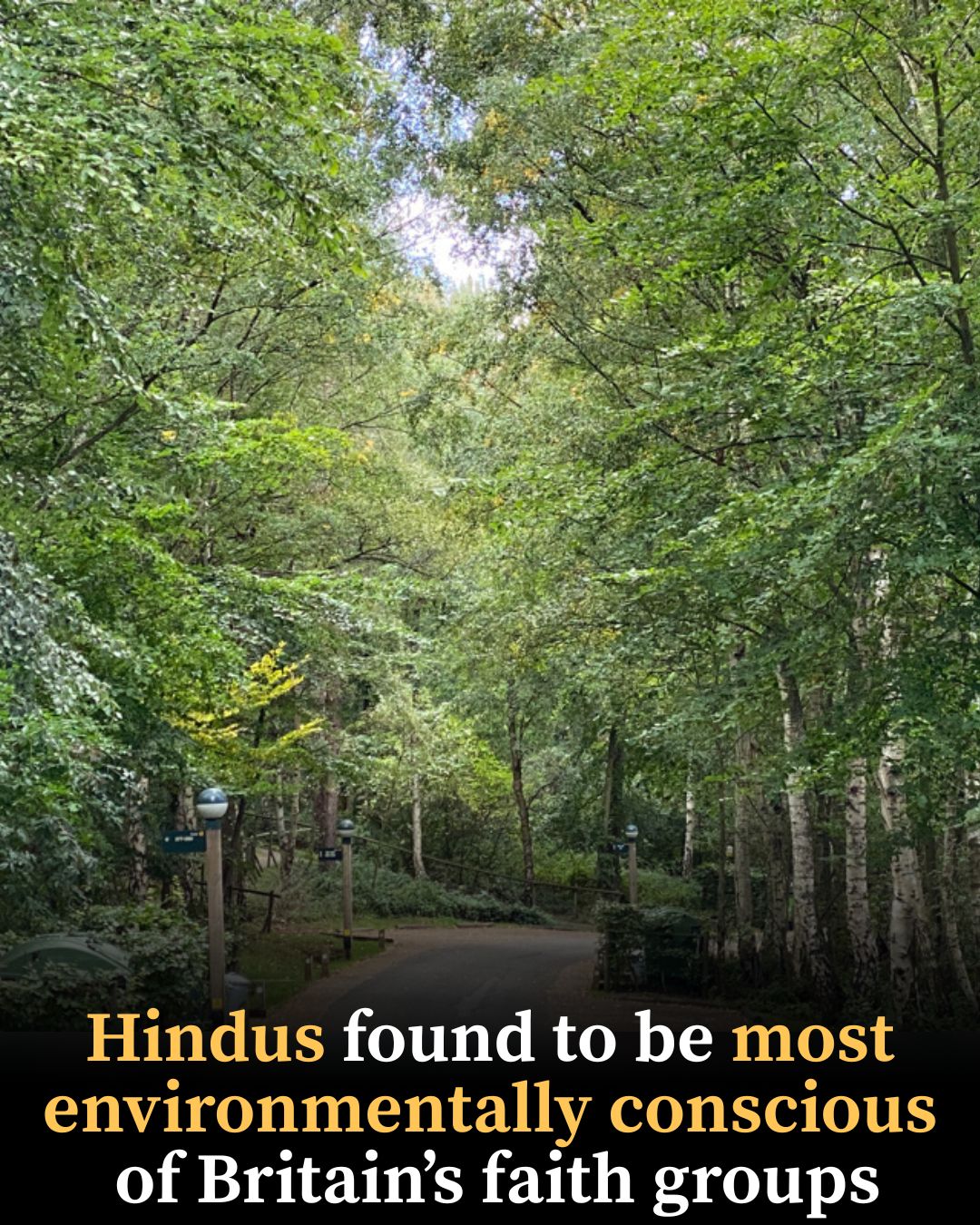A report by Institute for the Impact of Faith in Life (IIFL) concluded that Hindus in the UK are most likely to engage in environmentally friendly behaviour than other religious groups. The report was based on a survey of Britain’s three largest religious communities; Christians, Muslims, and Hindus – Britain’s three largest religious communities, questioned on their relationship between faith and environmentalism. Hindus scored highest on different measures of environmental concern. 64% of Hindu respondents participated in rewilding compared to 31% of Musims and 22% of Christians. Hindus also score highest in changing consumer habits, donating to charities, joining environmental groups and are most likely to factor environmentalism when voting.
Researchers concluded these patterns are no coincidence: “Hinduism’s emphasis on the interconnectedness of all existence fosters a deep-rooted environmental ethic, where nature is not merely a resource but a sacred entity. The belief that God is in everything connects humanity with all existence, reinforcing an intrinsic responsibility toward conservation,” – Amanda M. (IIFL research associate). The report concluded that Hindus are more likely to view the world as an ecosystem and that all objects in the world can be viewed as spaces of worship. By contrast Christian and Muslim views are shaped by beliefs that humans are stewards of nature and engaging in environmentalism is the order or command of God. The report shows that climate change denial is highest in Christians. And whilst 92% saw caring for the earth as a requirement of their religion, they are less likely to be concerned about the climate crisis due to a belief that God will restore the world.
Read the report here: https://iifl.org.uk/reports/report-conserving-the-world-in-faith/

